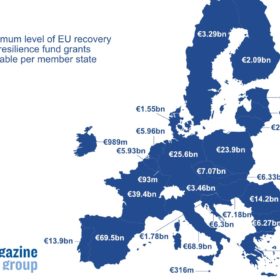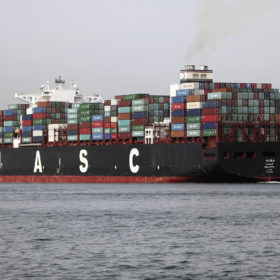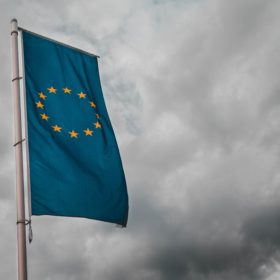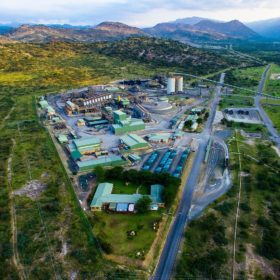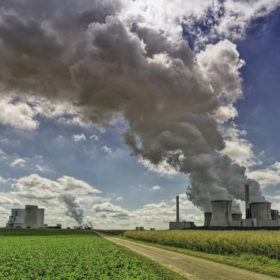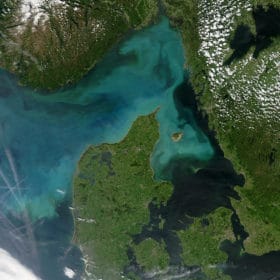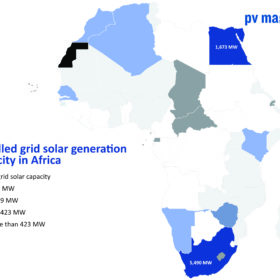EU raises another €15bn for Covid-recovery effort
The bloc’s latest two bonds were oversubscribed more than 11 times yesterday as the European Commission announced the results of a second fundraising round which already puts the EU almost halfway to the €80 billion it intends to generate through such instruments this year.
The weekend read: New support for Europe’s green energy transition
The European Commission will propose a number of new laws this summer and fall that are set to boost investment in renewable electricity and green hydrogen, reports Andreas Walstad in Brussels.
Spain to devote €3.9bn of EU cash to ‘innovative renewables’
The investment has been planned as part of the nation’s recovery and resilience plan to access EU funds for its post-Covid economic stimulus package. The spending plans of Portugal and Greece have also been approved by the European Commission in the last 48 hours.
European Court: Renesola cells assembled into modules in India were correctly subject to EU anti dumping duty
The ruling was issued on Thursday after the matter was referred by a U.K. tax tribunal which, in March last year, upheld the U.S.-headquartered solar manufacturer’s claim the assembly of cells into panels is an important step, which should render such products Indian.
ESMC criticises lack of solar manufacturing in Euro recovery plans
The trade body has highlighted a lack of explicit PV industry support in EU member states which already host domestic manufacturers, such as Germany, France, Austria, Belgium and Lithuania, and says the focus on green hydrogen could exacerbate the solar trade deficit with Asia.
Green hydrogen supply chain concerns
With South Africa holding 63,000 of the world’s estimated 69,000 metric tons of platinum reserves – according to the Statista.com website – and Russia and Zimbabwe a further 5,100 between them, the European Commission has cited the metal as an example of a potential supply chain bottleneck that could handicap its grand plans for renewables-powered hydrogen production.
Eurostat figures confirm rise of renewables during Covid-hit 2020
While solar, wind and hydro generated 80 TWh more electricity last year than in 2019, coal and oil use fell in every EU member state, and Greek energy emissions fell almost 19%.
EU approves Danish contracts-for-difference incentive program
The €400 million, three-year scheme will guarantee price stability for developers while limiting costs to the Danish treasury and applies to on and offshore wind, wave power and hydro, as well as solar.
EU moves step nearer €11.5bn fund for coal-dependent regions
The European Parliament appears to have made the terms of the energy transition funding stream for public sector entities more favorable by securing a bigger slice of non-repayable grant cash for the bloc’s most deprived regions.
EU to offer expertise to drive renewables-friendly policy across Africa
The oft-heard industry call for more supportive policy for renewables, this time in Africa, has prompted the European Commission to pledge to work with its continental counterpart on improving the clean energy regulatory environment.
